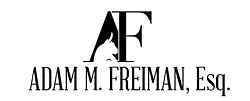Bankruptcy is a legal process that affects many aspects of life. If you are going through bankruptcy and are currently unemployed or looking for a new job, you may wonder if employers can see your bankruptcy.
The short answer is: it depends. It depends on the type of background check the employer performs, as well as the type of employer. Will you be affected? Here is what you need to know.
Credit Checks
Under state and federal law, employers may review an applicant’s credit history, but only with the applicant’s consent. Employers often use credit checks when hiring for positions that involve financial responsibilities or access to sensitive information.
A credit report can reveal whether an applicant has filed for bankruptcy. The length of time depends on the type of bankruptcy:
- Chapter 7 bankruptcy: up to 10 years
- Chapter 13 bankruptcy: up to 7 years
Federal Bankruptcy Court Checks
A direct search of federal bankruptcy court records provides detailed information about a bankruptcy case, including the filing date, case number, petitioners’ names, and discharge date.
It’s important to note that government employers cannot legally deny employment solely because of a bankruptcy filing. However, private employers may consider a bankruptcy case when making hiring decisions.
Criminal Background Checks
Bankruptcy is not a criminal matter. It is handled through the U.S. Bankruptcy Courts, which are part of the federal civil court system. As a result, bankruptcies do not appear on criminal background checks, which only report criminal charges, pending cases, or convictions.
Civil Court Background Checks
Civil court checks reveal local or federal civil cases, such as lawsuits, judgments, estate disputes, or personal injury cases. Because bankruptcy is handled exclusively in federal bankruptcy courts, it does not appear in standard civil court background checks.
Employment Verification
Employment verification reviews an applicant’s work history, including employers, dates of employment, positions held, and, in some cases, feedback on job performance. These checks do not include information about bankruptcy filings.
Education Verification
Education verification confirms an applicant’s academic background, such as schools attended, degrees earned, and dates of attendance. Like employment verification, this type of check does not reveal bankruptcy records.
Bankruptcy Reporting
The Fair Credit Reporting Act (FCRA) protects consumers’ privacy by regulating how consumer reporting agencies (CRAs) collect, store, and share personal information. The FCRA limits how long certain negative information can appear on background checks for jobs with annual salaries under $75,000.
Specifically, information older than seven years is not reportable. However, Chapter 7 bankruptcies may still be reported for up to 10 years. In practice, this means most employers will not see bankruptcy cases on a background check once they are beyond the seven- to 10-year reporting window.
Contact Us Today
Bankruptcy is not something you want your current or prospective employers to know about, but sometimes it can show up. While discrimination based on bankruptcy is illegal in many cases, it still happens.
Worried about your bankruptcy in terms of future employment? The Law Offices of Adam M. Freiman can answer your questions about bankruptcy so you have all the information you need to make good decisions. To schedule a consultation, fill out the online form or call (410) 486-3500.






